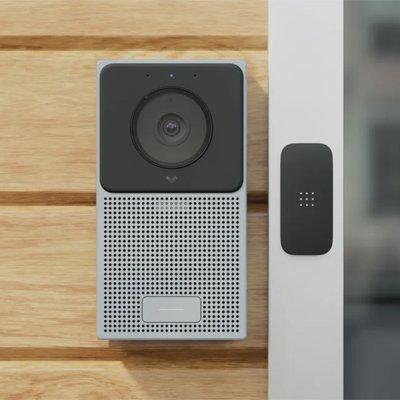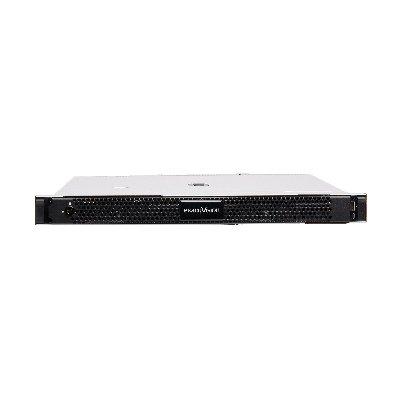Does The Security Market Really Understand The Meaning Of 'cloud?'
Editor Introduction
There’s a huge cloud hanging over the physical security market, but in a good way. Cloud-based systems, whether for video, access control or another category, are on the verge of taking the industry by storm. The benefits of that mythical “cloud” are well-known, or certainly well-touted, in the market. It’s almost as if the word “cloud” has become a buzzword that can mean different things, or at least whatever the customer wants it to mean (as long as they buy!). We asked this week’s Expert Panel Roundtable to define the term more specifically, and to comment on the industry’s understanding of the terminology. Specifically, we asked: Define what we mean by “the cloud.” Is the definition universally understood in the market?
Cloud computing really represents the move from infrastructure-based computing to demand-based computing. Typically, a cloud solution should provide the following benefits:
- Pay as you go — A customer pays only for the resources they use and nothing more
- Self-sufficient — Users can add or remove resources on their own
- Multi-tenant— All customers reside seamlessly on the same infrastructure
- Resources can be easily scaled to handle increased load, and typically should scale automatically
- High levels of availability and redundancy, with data often mirrored between geographically separate data centers.
Cloud computing is defined by the National Institute of Standards and Technology (NIST) as a model for enabling convenient, on-demand network access to a shared pool of configurable computing resources. Using the cloud, many organizations can more easily deploy and manage applications by sharing the cost of some of the underlying components of a solution. The number of different “cloud” business models – from software-as-a-service, to infrastructure-as-a-service, to variations in between – is what makes for the confusion around what the cloud is. Ultimately, cloud services let a customer focus on their core competencies, and offload things that are not core to their business. For example, many enterprises understand the need for emergency notification services but few want to become experts in managing huge spare phone calling capacity for a rare emergency event and are happy to offload that responsibility to a cloud-based service provider.
"The cloud" is a means of hosting data centrally/off-site whereby users can request this information on demand over the internet. The use of cloud technology is commonplace in everyday life, with products and services such as Netflix, Apple Music, DropBox and Internet banking. The security market’s adaptation of cloud services is gathering pace; we see more products available within the video surveillance as a service (VSaaS) and access control as a service (ACaaS) space. The main enabler for VSaaS is bandwidth: With fiber broadband becoming more widespread, pushing video off-site to “the cloud” is now more achievable.
When the security industry talks about “The Cloud,” we usually mean software systems and services hosted in remote server farms and the options for using this technology to re-invent the way we do things – how we interact with our business systems and from what devices. It is no longer unusual for the servers and connected devices to be hosted somewhere other than your office or home. In fact, servers can be located anywhere in the world, with just the same functionality as a local system. At the same time, there is an unprecedented number of devices that can be used to connect to these systems, and the scope for choice is ever-expanding. While this repositioning of system components is driving new ways of doing business, it would seem that unfortunately this isn’t always being fully understood or adopted in our market.
“The cloud” is a global term that can mean different things depending on the industry it is referring to. In the simplest of terms, “cloud” means to have a remote location that stores data, video, or other remotely accessible information. The term “cloud” is often confused with “hosted.” The term “hosted” means managing security solutions, the engine of the platform and its devices. All that said, the industry IS familiar with the cloud and the benefits it can provide, such as on-demand access to devices via mobile app or browser. Additionally, leveraging the cloud eliminates the need for extra equipment (DVR, NVR, etc.).
The cloud is an overused term that seems to be a mystery to most within the security industry; but in all actuality, it's growing in popularity. The definition is really a shift from hardware-based functionality, such as an investment in physical hardware and servers to run applications, to using storage in a connected network to run similar applications. This results in the cost-effective management of data for many organizations. Instead of using capital investments on in-house hardware, organizations now can use cloud-based programs to help streamline their businesses and provide advanced security functionality. For the market, there's still a disconnect on the definition of the cloud and its use cases, which is why it falls to manufacturers and integrators to educate clients on the importance of network security (after all, if you're storing data on a network, you should have safeguards) and how best to use emerging cloud-based applications.
Editor Summary
There is a specific definition of the “cloud,” although the specifics can sometimes get lost in translation as the industry looks to promote the benefits of a new approach to meeting computing needs. Unfortunately, the term “cloud” is a specific technology and has become a ubiquitous industry buzzword. We should be aware that how the industry promotes utilising cloud technology may muddy our understanding of this powerful new technology and its broader impact on the market.
- Related links
- ACT Access control systems & kits
- Axis Communications Video Surveillance software
- TDSi Access control systems & kits
- TDSi Surveillance cameras
- TDSi Video Surveillance software
- Axis Communications IP cameras
- TDSi IP cameras
- Axis Communications Network Video Recorders (NVRs)
- TDSi Network Video Recorders (NVRs)
- Axis Communications Storage
- Seagate Storage
- Axis Communications Fibre optics, telemetry receivers, transmitters, transceivers
- View all news from
- Axis Communications
- Vanderbilt Industries
- TDSi
- 3xLOGIC, Inc.
- Seagate Technology
- Oprema
- Rave Mobile Safety
Expert commentary
Security beat
Security bytes
- Getting To Know Dan Grimm, VP And General Manager Of Computer Vision At RealNetworks
- Big Wins And The Importance Of Showing Up: Insights From SecurityInformed.com Editor Larry Anderson
- Setting Goals, Business Travels And Radioactivity: Success Secrets From Tiandy's John Van Den Elzen
- Getting To Know Jeff Burgess, President/CEO At BCDVideo
Multi-Residential Access Management And Security
DownloadGuide For HAAS: New Choice Of SMB Security System
DownloadPrecision And Intelligence: LiDAR's Role In Modern Security Ecosystems
DownloadHikvision: Solar Powered Product Introduction + HCP
DownloadGunshot Detection
DownloadVerkada TD52 Cloud-Based Video Intercom
exacqVision IP08-64T-R1XW-E X-Series 1U Rdnt IP NVR 64TB RAID5 Windows OS with 8 IP Ent Lic
Climax Technology TouchPanel-3 7” Color Graphic Touchscreen Panel





















